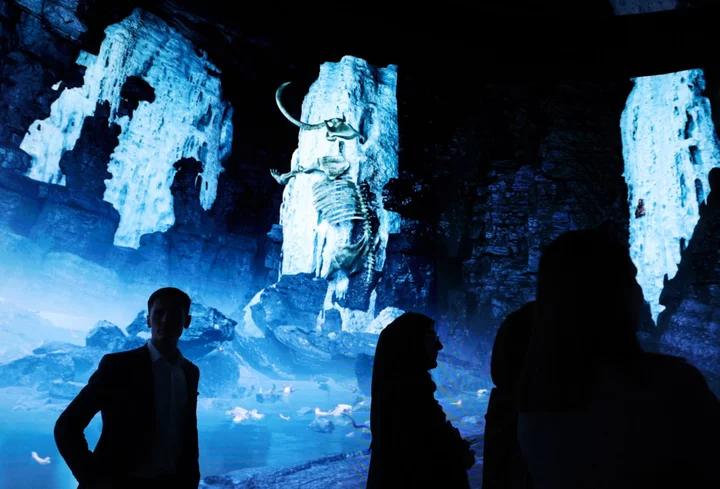
COP28 Latest: Saudi’s MBS Among Leaders Kicking Off UN Talks
Sign up for the Green Daily newsletter for comprehensive coverage of the climate summit right in your inbox.
2023-12-01 15:27
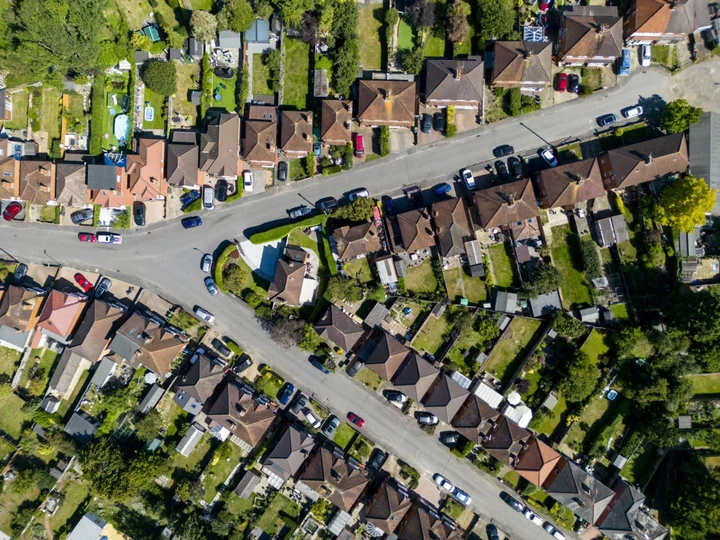
UK House Prices Rise Unexpectedly for Third Month in November
UK house prices rose unexpectedly for a third month, one of the country’s biggest mortgage lenders said, as
2023-12-01 15:23
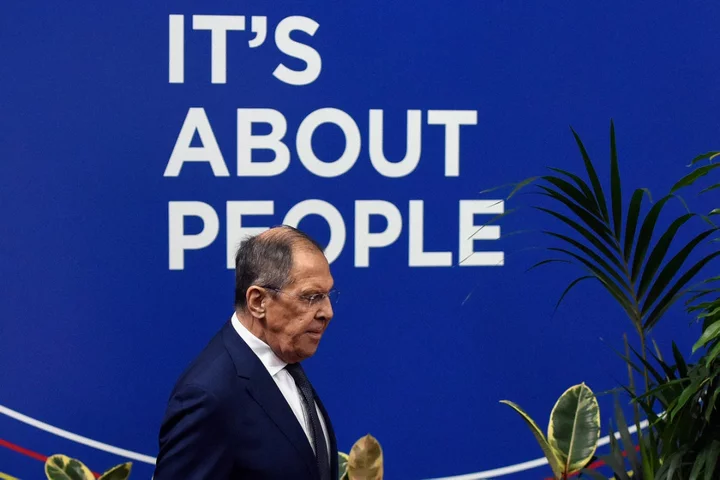
Official walk out as Russia’s Sergei Lavrov speaks at European security meeting
Russian foreign minister Sergei Lavrov came face-to-face with Western critics while attending international security talks on Thursday, amid European protests that Vladimir Putin’s top diplomat was invited to the summit while he wages war against Ukraine. Some European officials present in North Macedonia walked out as the Russian minister addressed a session for foreign ministers of the Organisation for Security and Cooperation of Europe (OSCE), videos of the event showed. A number of foreign ministers refused to attend the event over Russia’s involvement, including those of Ukraine, Estonia, Latvia and Lithuania. Some states, Ukraine among them, sent no representatives whatsoever. US secretary of state Antony Blinken made only a brief stop in North Macedonia’s capital, Skopje, late on Wednesday, and did not attend Thursday’s talks. Mr Lavrov spoke for15 minutes, during which the walkout occurred. It was not immediately clear from videos which countries’ officials were involved. The Russian foreign minister’s comments followed the now-familiar narrative from the Kremlin that “Nato’s reckless expansion to the East” was to blame for war returning to Europe, rather than his own president’s decision to order the invasion of Ukraine. “Unfortunately, the Western political elites, which have arrogated to themselves the right to decide the fate of humanity, have made a short-sighted choice not in favour of the OSCE, but in favour of Nato. In favour of the philosophy of containment, zero-sum geopolitical games and the ‘master-slave’ logic,” Mr Lavrov told the session. He also attacked the platform of the summit itself, saying that “the OSCE and its relevant institutions are silent” over what he described as the denial of “the very existence of Russians and their decisive contribution to the histroy of Ukraine”. And he blamed the start of the Ukraine war on Western tolerance for the “ruling neo-Nazi regime in Kyiv”. Russian president Vladimir Putin has repeatedly alleged that Ukraine’s government is made up of “neo-Nazis,” even though the country has a democratically elected Jewish president who lost relatives in the Holocaust. Western ministers attending the OSCE meeting were sharply critical of Mr Lavrov after he spoke. “Russia’s attempts to blame others for its own choices are transparent,” said Danish foreign minister Lars Lokke Rasmussen, who was speaking when Mr Lavrov himself walked out of the summit. “We will not compromise on the core principles of the European security order or allow Russia to deny Ukraine the right to make its own independent foreign and security policy choices – principles that Russia itself has agreed to,” he continued. Based in Vienna, Austria, the OSCE is an intergovernmental organisation focused on promoting security, stability, and cooperation among its participating states. Nato member North Macedonia lifted a ban on Russian flights to enable Lavrov to attend the meeting. Russian state news agency Tass reported that the minister flew a longer route over Turkey and Greece to reach the summit after Bulgaria blocked his plane from using its airspace. Greek officials did not immediately return a request for comment. Additional reporting by agencies Read More Takeaways from AP's Interview with Ukrainian President Volodymyr Zelenskyy The AP Interview: Ukraine's Zelenskyy says the war with Russia is in a new phase as winter looms Ukraine war live: Russia sees record losses as baby amongst injured in missile strike Russia’s Supreme Court effectively outlaws LGBTQ+ activism in a landmark ruling UN atomic chief backs nuclear power at COP28 as world reckons with proliferation Russia’s top court bans LGBT+ activism as ‘extremist’ in new crackdown
2023-12-01 14:52
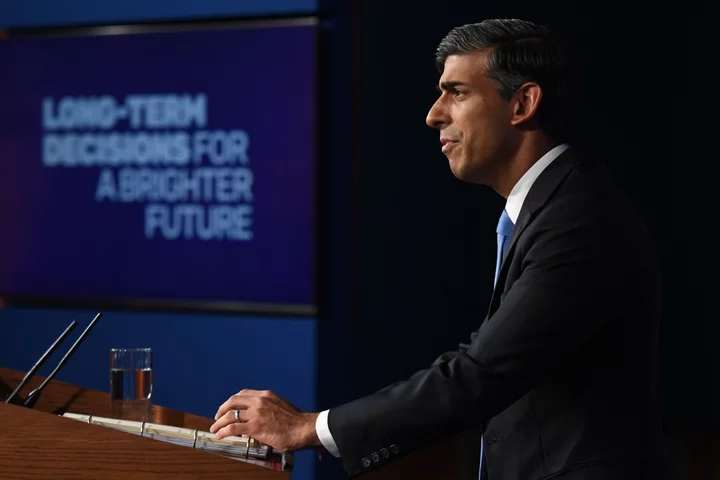
Sunak Spends £1.6 Billion to Try to Show COP He’s On Message
Rishi Sunak pledged to spend £1.6 billion ($2 billion) on climate projects, as the British premier arrives at
2023-12-01 14:19
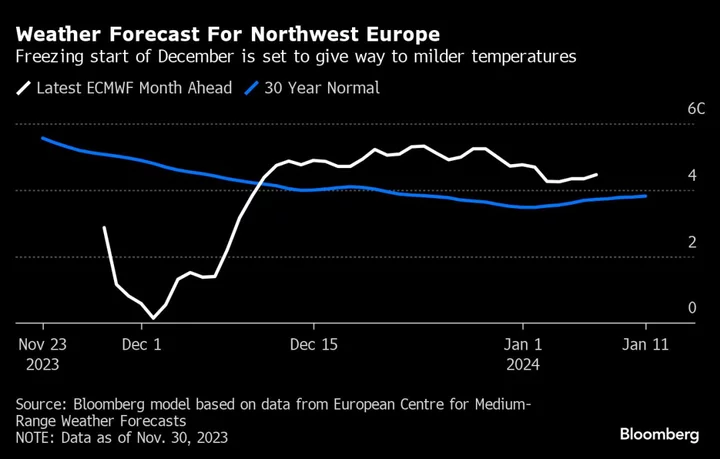
Europe’s Winter Freeze Set to Give Way to Milder December
Europe’s icy start to December is forecast to give way to milder conditions as the month progresses, providing
2023-12-01 14:18
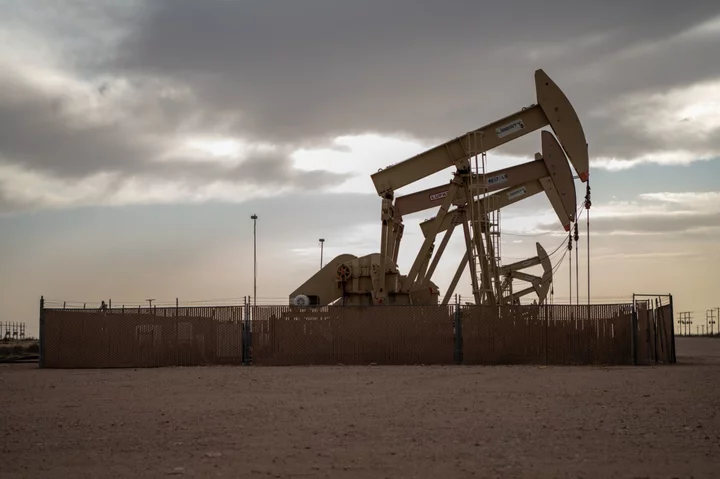
Oil Holds Drop After ‘Voluntary’ OPEC+ Cuts Lead to Confusion
Oil steadied after tumbling on Thursday following an OPEC+ meeting that promised further output cuts but was hazy
2023-12-01 13:47
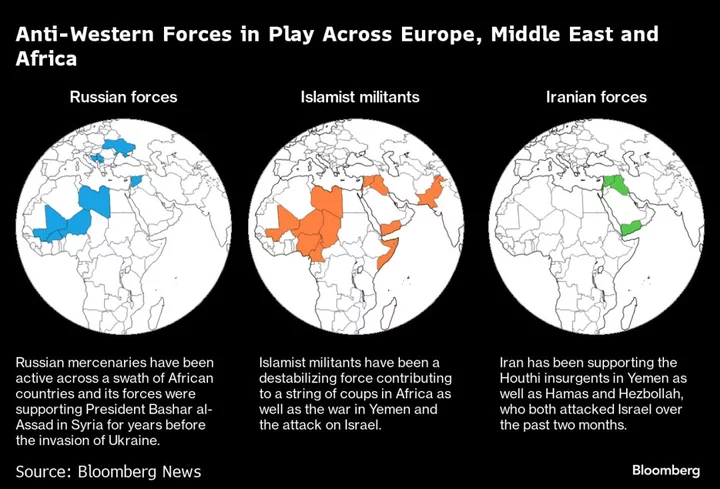
Fears of a New World War Prey on Hedge Fund Titans and Policymakers Alike
Officials and investors are starting to worry that the world is sliding toward a new era of great-power
2023-12-01 13:29
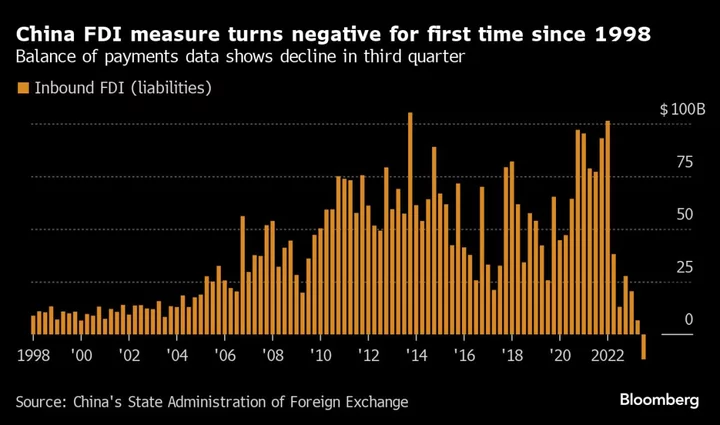
Xi Takes Flurry of Small Steps to Open China After US Trip
President Xi Jinping’s government has vowed all year to restore foreign investors’ shattered confidence in China. Since a
2023-12-01 13:24
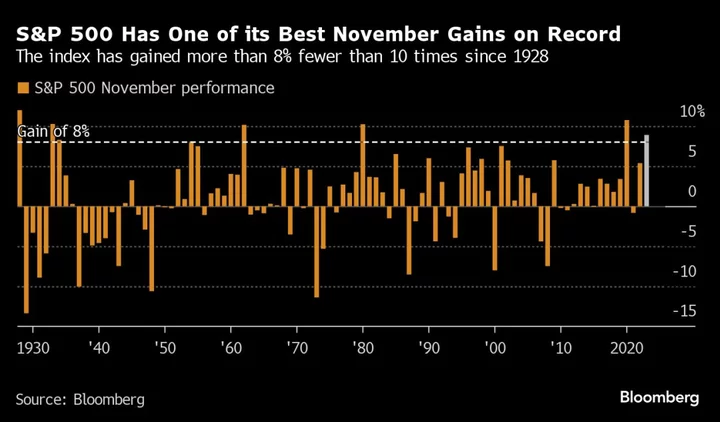
Asia Stocks Mixed Amid Bumper Month on Wall Street: Markets Wrap
Shares in Asia opened mixed after Wall Street saw a late-day rebound in trading, helping the S&P 500
2023-12-01 09:17
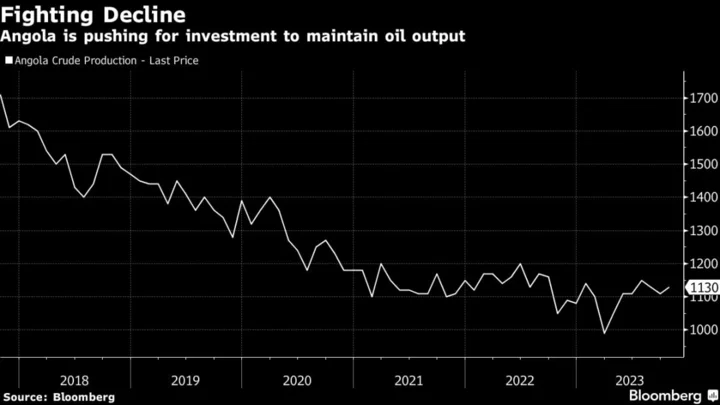
Angola Rejects OPEC Quota and Vows to Break It
Angola rejected a new output quota handed to it by OPEC and said it planned to breach it,
2023-12-01 02:46

Russia-Ukraine war – live: Baby injured and families trapped under rubble as Putin’s troops hit record losses
Russian missiles have torn through apartment buildings in eastern Ukraine’s Donetsk region, killing at least two people, injuring a baby and burying families under rubble. The missiles hit three Donetsk cities, Pokrovsk, Novohrodivka and Myrnohrad, Ukrainian internal affairs minister Ihor Klymenko said. In Pokrovsk, Emergency crews helped rescue a man with a six-month-old baby, covered in blood, in his hands, officials said. The strikes destroyed a multi-storey building, nine houses, a police office and cars. Emergency workers pulled the body of a 62-year-old man from the wreckage of a destroyed multi-storey building in Novohrodivka. Four more people may be under the rubble, including a child, authorities said. It comes as statistics by a longtime Russo-Ukraine War military data researcher suggested Russian forces have faces record losses this month. Data published by Ragnar Gudmundsson said more than 25,000 Russian service personnel died or were severely wounded in combat in Ukraine in November. It added that an average of 994 men were killed a day during the previous week. Kremlin spokesmen have admitted Russian forces have suffered unexpectedly heavy losses during its invasion of Ukraine but accuse Kyiv of inflated claims. Read More Senior Russian general ‘killed by one of Putin’s own landmines’ in Ukraine Finland closes last crossing point with Russia, sealing off entire border as tensions rise Cameron condemns Moscow ahead of OSCE summit including Russian counterpart
2023-11-30 23:56
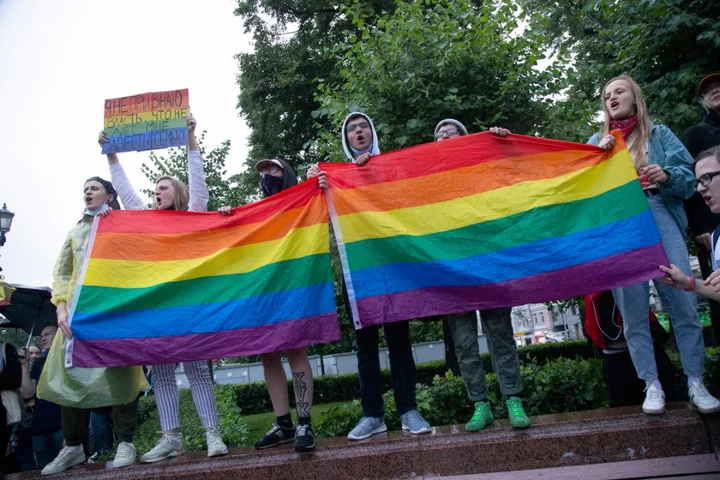
Russia’s top court bans LGBT+ activism as ‘extremist’ in latest crackdown
Russia’s top court has ruled that LGBT+ activists should be designated as “extremists” and issued a ban against such work – the most drastic step in a years-long crackdown on the community in the country. This effectively outlaws LGBT+ activism across the country, in a move that representatives of the gay and transgender communities fear will lead to arrests and prosecutions. The hearing took place behind closed doors and with no defendant. Multiple rights activists have pointed out that the lawsuit targeted the “international civic LGBT movement”, which is not an entity but rather a broad and vague definition that would allow Russian authorities to crack down on any individuals or groups deemed to be part of the “movement”. In a statement announcing a lawsuit filed to the court earlier this month, Russia’s justice ministry argued that authorities had identified “signs and manifestations of an extremist nature” by an LGBTQ+ “movement” operating in Russia, including “incitement of social and religious discord”, although it offered no details or evidence. In its ruling, the court declared the “movement” to be extremist and banned it in Russia. “Despite the fact that the justice ministry demands to label a nonexistent – ‘the international civic LGBT movement’ – extremist, in practice it could happen that the Russian authorities, with this court ruling at hand, will enforce it against LGBT+ initiatives that work in Russia, considering them a part of this civic movement,” Max Olenichev, a human rights lawyer who works with the Russian LGBT+ community, told the Associated Press ahead of the hearing. The ruling is the latest in more than a decade of restrictions on LBGT+ rights under Vladimir Putin, who has put what he calls “traditional family values” at the centre of his appeal to the Russian public. In 2013, the Kremlin adopted legislation known as the “gay propaganda” law, banning any public endorsement of “nontraditional sexual relations” to children. In 2020, constitutional reforms pushed through by Mr Putin to extend his rule by two more terms also included a provision to outlaw same-sex marriage. After sending troops into Ukraine in 2022, the Kremlin ramped up its comments about protecting “traditional values” from what it called the West's “degrading” influence, in what many have seen as an attempt to legitimise the invasion as Western nations have lined up to support Ukraine. The language from Mr Putin regarding LGBT+ communities has ramped up as the Russian president has sought to set Moscow against the West in almost every facet of society. In the wake of the Ukraine invasion, the authorities adopted a law banning propaganda of “nontraditional sexual relations” among adults, also, effectively outlawing any public endorsement of LGBT+ people. Another law passed earlier this year prohibited gender-transitioning procedures and gender-affirming care for transgender people. The legislation prohibited any “medical interventions aimed at changing the sex of a person”, as well as changing one’s gender in official documents and public records. It also amended Russia’s family code by listing gender change as a reason to annul a marriage and adding those “who had changed gender” to a list of people who can’t become foster or adoptive parents. Samples of Mr Putin’s degrading language were illustrated by a speech last year where he said the West was welcome to adopt “rather strange, in my view, new-fangled trends like dozens of genders, and gay parades” but had no right to impose them on other countries. Such rhetoric has been decried by nations across the world. Mr Putin’s spokesperson Dmitry Peskov told reporters before the latest court decision was announced that the Kremlin was “not following” the case and had no comment on it. The Supreme Court took around five hours to issue its ruling. The proceedings were closed to media, but reporters were allowed in to hear the decision. LGBT+ groups had seen the decision as inevitable after the request by the justice ministry, which said – without giving examples – that “various signs and manifestations of extremist orientation, including the incitement of social and religious discord” had been identified in the activities of what it called the LGBT+ movement in Russia. The UN high commissioner for human rights, Volker Turk, has repeatedly called on Russia to repeal its repression of LGBT+ rights and the UN as a whole, along with nations such as the US, UK and others have condemned such moves from the 2013 propaganda law onwards. Russian officials have tried to reject accusations of discrimination, despite a crackdown on freedom of expression. Earlier this month, Russian media quoted Andrei Loginov, a deputy justice minister, as saying that “the rights of LGBT people in Russia are protected” legally. Mr Loginov spoke in Geneva, while presenting a report on human rights in Russia to the UN Human Rights Council, and argued that “restraining public demonstration of non-traditional sexual relationships or preferences is not a form of censure for them.” For LGBT+ groups and activists, there are deep fears that this is just the beginning of another round of arrests. “Of course, it’s very alarming, and I don’t remember the threat ever being so serious and real,” Alexei Sergeyev, an LGBT+ activist in St Petersburg, told Reuters earlier this month. More than 100 groups are already banned in Russia as “extremist”. Previous listings, for example of the Jehovah’s Witnesses religious movement and organisations linked to opposition politician Alexei Navalny, have served as a prelude to arrests and court cases. Mr Sergeyev said activities such as psychological and legal support, or even “meetings where you can just sit and drink tea”, would be driven underground, given the broad and vague nature of this ruling – depriving many LGBT+ people of support. Reuters and Associated Press contributed to this report Read More Russia's Lavrov faces Western critics at security meeting, walks out after speech Putin asks Russian women to have ‘eight or more’ children amid deaths in his war Russia-Ukraine war live: Families trapped under rubble after missile strike Ukraine spy chief’s wife treated for suspected metal poisoning Putin won’t consider stopping Ukraine war until after US election – official Chechen warlord Kadyrov offers Putin 3,000 more fighters amid heavy Russian losses
2023-11-30 21:56
